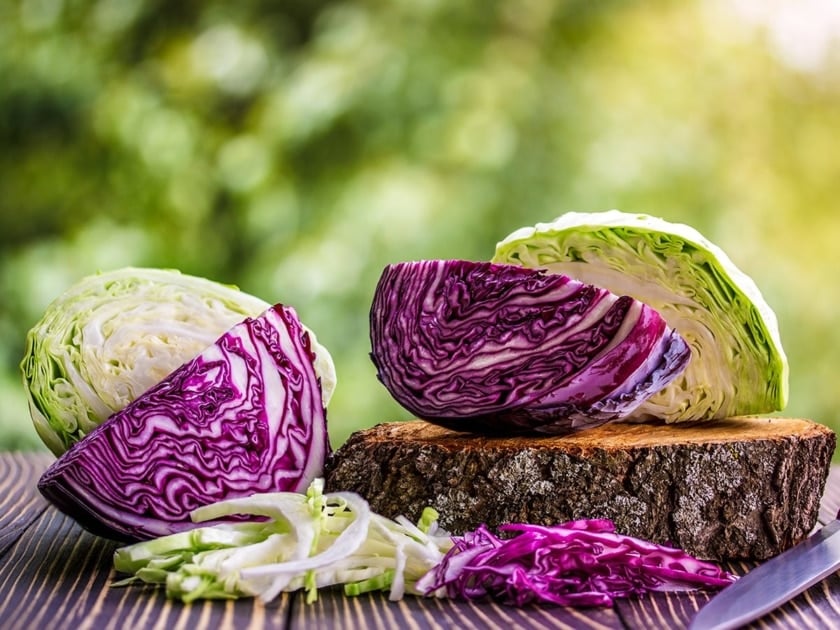Cabbage, a leafy green, red, or white cruciferous vegetable, is not only versatile and affordable but also packed with nutrients that offer numerous health benefits. Belonging to the Brassica genus, which includes broccoli, cauliflower, and kale, cabbage is rich in vitamins, minerals, and other beneficial compounds. Here’s a closer look at the health benefits of including cabbage in your diet.
1. Rich in Nutrients
Cabbage is exceptionally nutrient-dense, providing a significant amount of vitamins C and K, folate, manganese, vitamin B6, and calcium, all while being low in calories. This makes it an excellent choice for those looking to maintain or lose weight without sacrificing nutritional intake.
2. High in Fiber
The fiber content in cabbage is beneficial for digestive health. Fiber helps to keep the digestive system running smoothly, preventing constipation and promoting a healthy gut microbiome. A diet high in fiber can also help to reduce the risk of chronic diseases such as heart disease, stroke, and diabetes.
3. Contains Powerful Antioxidants
Cabbage is packed with antioxidants, including vitamin C, carotenoids, flavonoids, and sulforaphane. These compounds can help reduce oxidative stress in the body, lowering the risk of chronic diseases. Sulforaphane, in particular, is noted for its potential anti-cancer properties, as it may help to inhibit the growth of cancer cells.
4. Promotes Heart Health
Certain substances in cabbage, such as potassium and anthocyanins (the pigments that give red cabbage its color), have been shown to reduce the risk of heart disease. Potassium helps to regulate blood pressure by counteracting the effects of sodium, while anthocyanins may provide anti-inflammatory and anti-atherogenic effects, further protecting cardiovascular health.
5. May Help Lower Cholesterol Levels
Cabbage can play a role in lowering cholesterol levels, which is beneficial for heart health. The fiber in cabbage binds with bile acids in the digestive system, causing the body to excrete them rather than reabsorbing them. This process requires the body to use cholesterol to produce more bile acids, thereby lowering the cholesterol levels in the blood.
6. Supports Immune Function
The high vitamin C content in cabbage not only acts as a powerful antioxidant but also supports the immune system by stimulating the production of white blood cells and acting as an antimicrobial. Vitamin C is essential for the body’s defense against pathogens and infections.

7. May Help with Inflammation
Cabbage contains several compounds that may help reduce inflammation. Chronic inflammation is associated with many diseases, including heart disease, rheumatoid arthritis, and inflammatory bowel disease. The antioxidants in cabbage, including sulforaphane and kaempferol, have anti-inflammatory properties that may alleviate some of these conditions.
8. Weight Loss Friendly
Cabbage is very low in calories but high in dietary fiber and water content, making it a perfect food for weight loss diets. It can add bulk to meals, helping you feel fuller for longer, which may reduce overall calorie intake.
9. Versatile and Easy to Include in Your Diet
Beyond its health benefits, cabbage is incredibly versatile. It can be eaten raw in salads or coleslaws, fermented to make sauerkraut or kimchi, which are probiotic-rich foods, or cooked in a variety of dishes like soups, stews, and stir-fries.
Conclusion
Cabbage is a nutritious vegetable that offers a wealth of health benefits, including improved digestion, better heart health, reduced inflammation, and potential cancer-fighting properties. Its versatility and ease of incorporation into meals make it an excellent addition to a healthy diet. Whether you’re looking to improve your overall health or simply enjoy a tasty and nutritious vegetable, cabbage is a choice worth considering.




